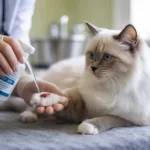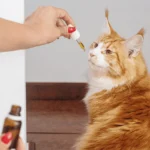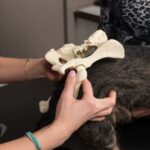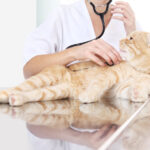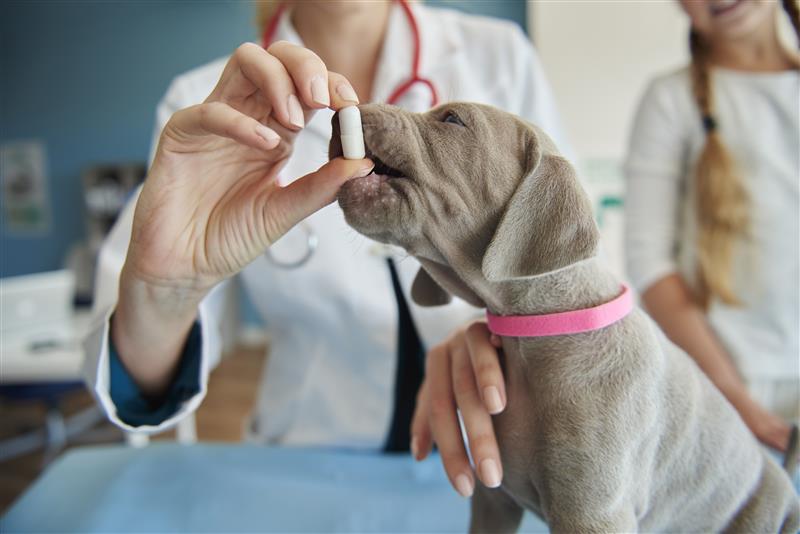
Contents
Stomach bloat, also known as gastric dilatation-volvulus (GDV), is a life-threatening condition that can affect pets, particularly dogs. It occurs when the stomach becomes distended with gas, food, or fluid, and in severe cases, the stomach may twist on itself, cutting off blood flow to the stomach and surrounding tissues. This twisting of the stomach is what makes bloat so dangerous and requires immediate medical attention.
If left untreated, bloat can lead to shock, organ failure, and even death. Understanding the symptoms of bloat, how to manage your pet during an episode, and when to seek urgent care is crucial for pet owners to save their pet’s life.
In this blog, we’ll discuss how to recognize the signs of bloat in pets, why it’s a medical emergency, and the steps you should take if you suspect your pet is experiencing stomach bloat.
What is Stomach Bloat (Gastric Dilatation-Volvulus)?
Stomach bloat, or gastric dilatation-volvulus (GDV), occurs when a pet’s stomach fills with gas and swells, causing discomfort and potentially severe complications. In the worst-case scenario, the stomach can twist, cutting off blood flow to the stomach and causing tissue death. This is a critical medical emergency that requires immediate treatment.
Bloat is most commonly seen in large or giant breed dogs, particularly those with deep chests, such as:
- Great Danes
- Doberman Pinschers
- German Shepherds
- Boxers
- Standard Poodles
However, bloat can occur in any dog breed, and even cats are susceptible to a milder form of the condition. Risk factors for bloat include:
- Rapid Eating or Drinking: Pets that consume food or water too quickly are at a higher risk.
- Exercise After Eating: Dogs that exercise or become very active right after eating can increase the likelihood of bloat.
- Stress or Anxiety: Stressful situations can trigger the onset of bloat, especially in pets that are already prone to gastrointestinal issues.
- Genetics: Certain breeds are genetically predisposed to developing GDV.
Recognizing the Symptoms of Stomach Bloat in Pets
Recognizing the signs of stomach bloat early is essential to saving your pet’s life. The symptoms can develop suddenly and worsen rapidly, so quick action is crucial. Here are the most common symptoms of bloat in pets:
- Swollen, Hard Abdomen
One of the most obvious signs of bloat is a swollen or distended abdomen. If your pet’s stomach appears bloated, hard, or visibly enlarged, this could be a sign that their stomach is filling with gas or fluid. In severe cases, you may notice the abdomen expanding dramatically. - Excessive Drooling
Pets with bloat may begin drooling excessively. This is often caused by the pain and distress associated with the condition, as well as difficulty swallowing due to the swelling of the stomach. - Restlessness or Anxiety
Bloat is incredibly painful for pets. They may show signs of discomfort by pacing, whining, or attempting to lie down but being unable to find a comfortable position. - Unsuccessful Attempts to Vomit
One of the most distressing symptoms of bloat is when a pet attempts to vomit but is unable to do so, often called dry heaving. If your pet is trying to vomit but isn’t producing anything, it’s a sign that their stomach is not functioning properly and is potentially blocked. - Rapid or Shallow Breathing
As the stomach swells and presses against the diaphragm, it can make it difficult for your pet to breathe. Rapid, shallow breathing is a common symptom of bloat and indicates that your pet is struggling to get enough oxygen. - Weakness or Collapse
As bloat progresses, your pet may become weak or lethargic. This can escalate to complete collapse due to a lack of blood flow to vital organs, which can be fatal if not addressed immediately. - Pale Gums or Mucous Membranes
Pale or bluish gums indicate that your pet is not getting enough oxygen, which is a sign of circulatory collapse due to shock. This is an urgent situation that requires immediate veterinary care.
What to Do If You Suspect Your Pet Has Stomach Bloat
If you notice any of the symptoms of bloat in your pet, it is critical to act quickly. Here’s what you should do:
- Contact an Emergency Vet Immediately
Stomach bloat is a medical emergency, and you should contact your vet or an emergency pet clinic right away. Let them know what symptoms you’ve observed so they can prepare for your arrival and provide immediate treatment. - Keep Your Pet Calm and Avoid Feeding or Drinking
While you’re waiting for professional help, try to keep your pet calm and avoid giving them any food or water. Offering food or water may worsen the condition or delay treatment. - Transport Your Pet to the Clinic
If you are instructed to bring your pet in for immediate care, transport them calmly and carefully to the veterinary clinic. Keep them as still and comfortable as possible during the journey to avoid further distress or injury. - Do Not Try to Treat at Home
It’s important not to try home remedies or attempt to relieve the bloat on your own. If left untreated, bloat can rapidly lead to shock, organ failure, and death. Always seek professional care as soon as possible.
Emergency Treatment for Stomach Bloat in Pets
When you arrive at the clinic, your vet will assess the situation and may take several steps to treat gastric dilatation-volvulus (GDV):
- Stabilization
In severe cases, the first step is to stabilize your pet. This may involve administering fluids intravenously (IV) to address dehydration and shock, as well as oxygen therapy to help with breathing. - Decompression
Your vet may attempt to relieve the pressure in your pet’s stomach by inserting a nasogastric tube or using a needle to release the gas. This procedure can help alleviate the swelling and reduce the pressure on the internal organs. - Surgery (If Necessary)
If your pet’s stomach is twisted, surgical intervention will be necessary to untwist the stomach and restore normal function. In some cases, the vet may recommend a gastropexy, a procedure to tack the stomach to the abdominal wall to prevent future twisting. - Post-Operative Care
After surgery or treatment, your pet will require close monitoring and care. They may need antibiotics to prevent infection, pain management, and ongoing support to aid in recovery.
Preventing Stomach Bloat in Pets
While bloat is a serious condition, there are steps you can take to prevent bloat in your pet:
- Feed Smaller, More Frequent Meals
Instead of feeding one large meal, consider breaking up your pet’s food into smaller, more frequent meals. This reduces the amount of food in the stomach at one time and minimizes the risk of bloat. - Avoid Exercising After Eating
Prevent your pet from running, playing, or engaging in strenuous exercise immediately after meals. Allow at least an hour for your pet to rest after eating before engaging in physical activity. - Use a Slow Feeder
If your pet eats quickly, use a slow feeder to encourage them to eat more slowly. Eating too fast can increase the risk of swallowing air, which contributes to bloat. - Monitor Stress Levels
Stress can trigger bloat, so try to reduce stressors in your pet’s environment. Avoid sudden changes and try to keep your pet’s routine consistent. - Regular Vet Check-ups
Regular vet visits allow your pet’s health to be monitored, and any underlying issues, such as heart disease or digestive disorders, can be detected early.
Conclusion
Stomach bloat (gastric dilatation-volvulus) is a serious and life-threatening condition that can affect pets, especially large breed dogs. Recognizing the symptoms of bloat early and seeking emergency care can save your pet’s life. By understanding the warning signs, taking immediate action, and preventing future occurrences, you can protect your pet from this dangerous condition.
If you believe your pet is experiencing bloat, don’t wait, contact North MS Pet Emergency right away. We are here to provide urgent care for your pets in emergencies like stomach bloat, ensuring they receive the best possible treatment.
Contact us now for immediate care, or visit us for emergency care for pets after hours.
